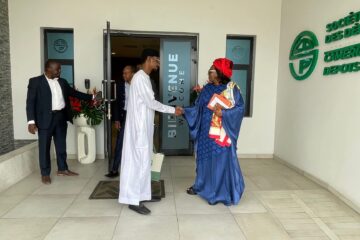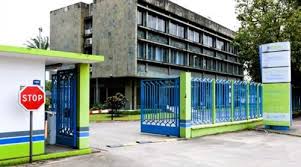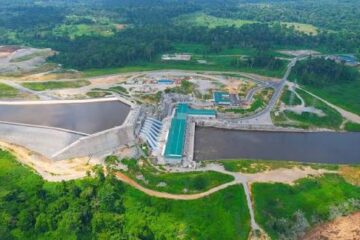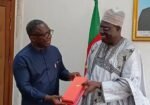Access to electricity: Private sector renewable energy companies capacity on the 2024 finance law

On June 7, 2024 in Yaoundé, the Association of Off-Grid Electrification Professionals of Cameroon (APELCA) in collaboration with GOGLA organized a capacity building workshop for companies in the renewable energy sector on the 2024 finance law on the theme “Tax and customs incentives on solar equipment in Cameroon: Impacts on the private sector and access to electricity”.
In the National Development Strategy (SND-30), the field of energy was defined as one of the main axes of Cameroon’s development and emergence policy by 2030. This strategy played a key role in facilitating large-scale access to energy for populations by further encouraging the use of renewable energy sources such as solar, wind or small hydroelectricity. According to ENEO, the government aims to fill the energy deficit, which is estimated at more than 330MW in 2021.
The government has decided to take incentive measures to reduce the energy deficit, with a focus on renewable energy, such as VAT exemptions and exemption from taxes and customs duties on equipment used for produce electricity using sources such as solar energy. “It was a question today of edifying private sector companies on the pitfalls, the facilities and the possibilities in relation to the new finance law 2024 for the better implementation of this measure so that it is renewed after the two years today to validate” declared Rose Peguy Dikongue, President of APELCA. She adds, noting that the private sector “is just starting to feel a little at ease with its activity quite simply because many things have not yet been put in place but over the course of the various pleas, we are starting to come out from the inn, we feel truly supported by the government which facilitates the development of activity in the sector through exemption from taxes and customs duties on imports. This is a great success for the private sector and it is really an opportunity to express our gratitude to the government for this measure.”
Note that this government will, combined with the efforts of the private sector which, engaged in a series of advocacy and awareness workshops, led to the exemption of taxes and customs duties on imports on solar equipment for a period of two years, through Finance Law No. 2023-019 of 12/19/2023. This Law covering general elements was supplemented by circular No. 02137 of 03/13/2024, establishing the list of renewable energy equipment and materials eligible for exemption from duties. and import customs taxes. This exemption, coming following the VAT exemption, applicable since 2012, highlights the need for private sector actors and the various bodies of the public energy sector to come together for a training session. to take ownership of the impacts of this new incentive, which involves total exemption for certain products and partial exemption for others. “The impact of the tax and customs incentive on solar equipment in Cameroon is positive on the private sector for the importation of solar equipment and solar-related accessories such as batteries and this allows us to offer more competitive offers to consumers” says Aurore Caillere, EDF Cameroon project engineer.
Remember that the Association of Off-Grid Electrification Professionals of Cameroon (APELCA) is a non-profit organization, created in August 2021, during a constitutive general assembly. APELCA is made up of local and international companies operating in the field of renewable energies, mainly solar. The objective is to support and accelerate the sustainable development of the market for off-grid electrification equipment and services and the integration of productive uses of energy. APELCA’s mission is to work in synergy with the government in the design and implementation of national policies for the development of renewable energies; collect and share information nationally and internationally; facilitate permanent public-private dialogue to improve the legal and regulatory framework; strengthen the adoption of renewable energies and productive uses within households and industries.
Note also that GOGLA, with more than 200 members around the world, supports associations around the world with the objective of developing the electricity sector in each African country. GOGLA also provides market intelligence, standards and best practices, and advocates for catalytic policies, programs and investments.
A.B




















 Green And Health news a été crée afin de contribuer au developpement médiatique au Cameroun.
Green And Health news a été crée afin de contribuer au developpement médiatique au Cameroun.